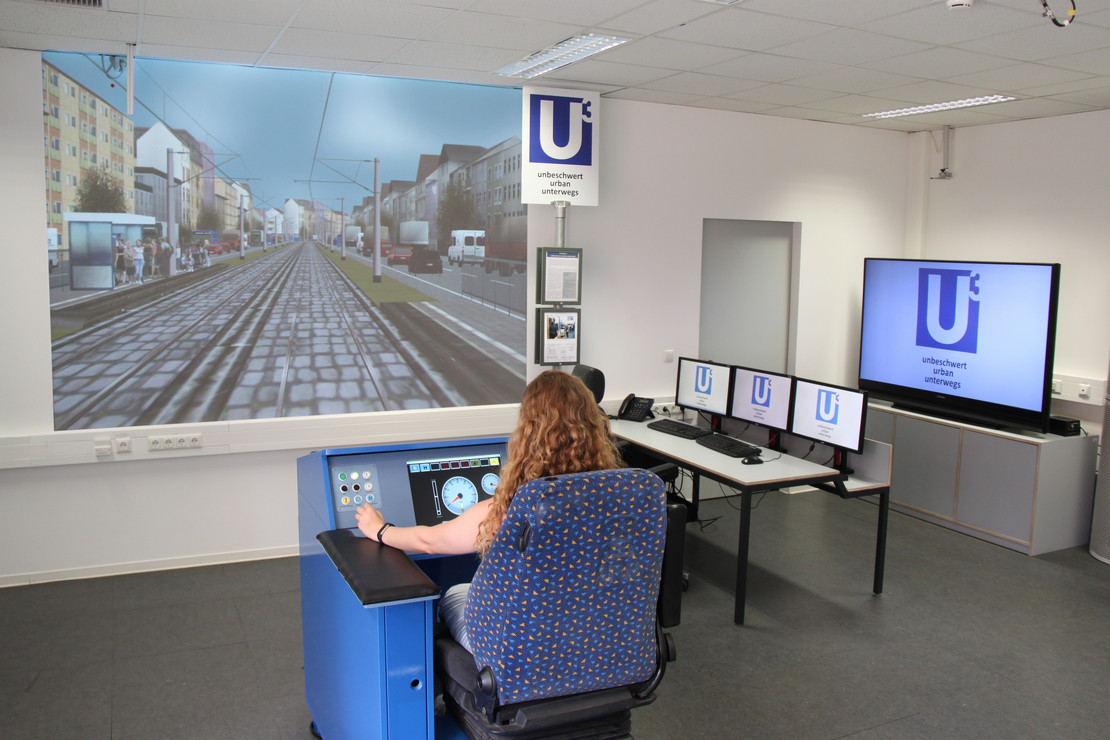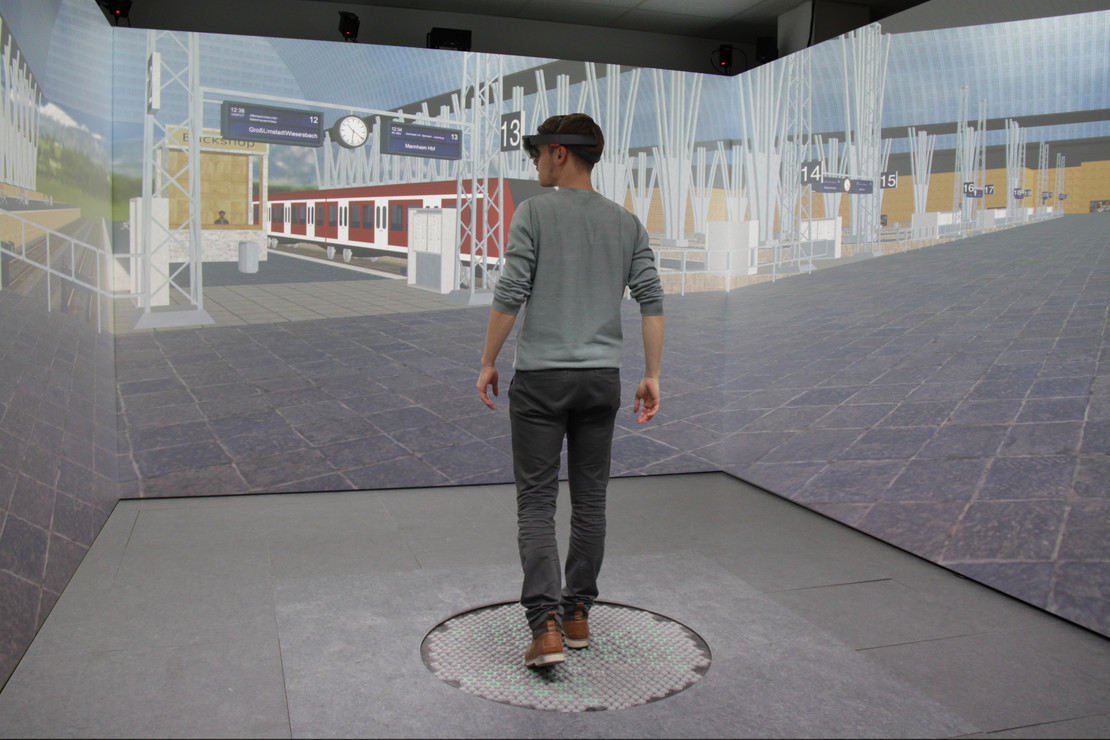The content on this page was translated automatically.
Assistance system to make public transport more attractive - one-year field test planned in Kassel
 Image: Department of Human-Machine Systems Engineering at the University of Kassel.
Image: Department of Human-Machine Systems Engineering at the University of Kassel. Image: Department of Human-Machine Systems Engineering at the University of Kassel.
Image: Department of Human-Machine Systems Engineering at the University of Kassel.Who hasn't experienced this: rushing from the streetcar to the bus stop with heavy shopping, but the connecting bus has just left and the next bus is overcrowded. To make the use of public transportation more customer-friendly, the partners in the U-hoch-3 ("Unbeschwert urban unterwegs") project are working on an information technology assistance system to reduce barriers to use. "We have designed an assistance system that supports passengers as needed along their travel chain. In addition to intermodal trip planning, it offers an innovative inner-city delivery service that covers the entire supply chain with baggage drop-off, transport and delivery, making it easier to shop without a car," says coordinator Prof. Dr.-Ing. Ludger Schmidt. "Instead of vans, cargo bikes are to be used for this. If, in addition, public transportation becomes more attractive and car drivers switch to buses and trains as a result, this will additionally reduce pollutant andCO2 emissions in the city and improve the quality of life in urban areas. Two-thirds of the distances traveled in cities are for leisure activities, shopping and private errands."
Initially, prototype components of the assistance system will be tested in the laboratory of the Human-Machine Systems Engineering department with the help of a CAVE, i.e. a simulation environment that uses three projection screens to virtually recreate a location such as a bus stop or a train station. Among other things, a streetcar simulator can be placed there and a pedestrian can move on a walking input device. In addition, a traffic control center will also be set up and the use of delivery robots will be investigated.
The system will then be implemented together with the project partners. In a one-year field test in Kassel, practical trials will be conducted and scientifically evaluated to determine how the occupancy status of public transportation can be recorded and made available in real time. The aim is to enable passengers to react flexibly to the occupancy status in their travel planning. In addition, a concept for securing connections is being tested. The idea is to enable customers to signal their wish for a connection so that transport service providers can ensure the connection and provide reliable information about it.
After an initial concept development phase, in which Prof. Dr.-Ing. Carsten Sommer's Department of Transportation Planning and Systems was also involved, and a multi-stage selection process as part of the BMBF's "Individual and Adaptive Technologies for Networked Mobility" research program, the second funding phase for the implementation of the project has now also been approved.
The project has a total duration of five years and a volume of a good 6.6 million euros. Prof. Dr. Arno Ehresmann, Vice President Research at the University of Kassel: "The positive decision for the second funding phase is impressive proof of the quality of the scientific work done so far. We are very pleased that the project will create an innovative laboratory for public mobility and urban logistics in Kassel, with which numerous project partners will be networked supraregionally and for which the university will receive a good 2.4 million euros in funding."
DHL (Bonn/Kassel), INIT Innovative Informatikanwendungen in Transport-, Verkehrs- und Leitsystemen (Karlsruhe) and IVU Traffic Technologies (Aachen/Berlin) are involved in the project as research and development partners. Application partners are Kasseler Verkehrs-Gesellschaft and Nordhessischer Verkehrsverbund (Kassel). In addition to the Department of Human-Machine Systems Engineering as overall project coordinator and the Department of Transportation Planning and Systems, the University of Kassel's Department of Public Law, IT Law and Environmental Law (Prof. Dr. Gerrit Hornung) is also involved. Associated partners include the Association of German Transport Companies, the City of Kassel, the network of the North Hessian mobility industry MoWiN.net, and Kassel retail associations and operators of shopping centers and parking garages.
For more information on the project, visit www.u-hoch-3.de
Contact:
Markus Zens
University of Kassel
Communications, Press and Public Relations
Tel.: +49 561 804-1961
E-mail: presse[at]uni-kassel[dot]de
Prof. Dr.-Ing. Ludger Schmidt
Department of Human-Machine Systems Engineering
University of Kassel
Mönchebergstraße 7
34125 Kassel
Tel. 0561 804 2704
E-mail: L.Schmidt[at]uni-kassel[dot]de